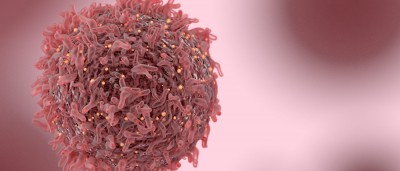Newswise — CLEVELAND—With a new $2 million federal grant, a researcher with the Case Western Reserve University School of Medicine will lead a team to further explore preliminary findings of an effective treatment for colorectal and possibly other cancers.
The grant, from the National Institutes of Health’s National Cancer Institute, supports the team’s promising results recently published in The Journal of Clinical Investigation.
“We reported a novel discovery that some cancer medications trigger ‘cell blasters’ to kill cancer,” said Zhenghe “John” Wang, the Dale Cowan–Ruth Goodman Blum Professor of Cancer Research and chair of the Department of Genetics and Genome Sciences at the School of Medicine.
Wang is also co-leader of the Cancer Genomics and Epigenomics Program at the Case Comprehensive Cancer Center (Case CCC).
Case CCC members David Bajor, an assistant professor at the School of Medicine and an oncologist at University Hospitals, and Alok Khorana, a professor at the School of Medicine and the Sondra and Stephen Hardis Chair in Oncology Research at Cleveland Clinic, are Wang’s collaborators on a clinical trial to test a new cancer treatment.
Their findings
White blood cells are the immune system’s first line of defense against bacterial infection. Neutrophils, the most abundant white blood cells, can undergo a self-destructive process to release web-like structures—called “neutrophil extracellular traps,” or NETs—to trap and kill bacteria, Wang explained.
In their study, the researchers found that combining two chemotherapy drugs (CB-839 and 5-FU) stopped the growth of a type of colon cancer in mouse models that involves PIK3CA—a gene that controls cell growth. They credited the success partly on NETs, because the drugs weren’t as effective when the traps were disturbed.
“We found that patients with tumors that have increased amounts of NETs after the drug treatment survived longer,” Wang said. “We found that certain cancer drugs hijack these neutrophils to kill cancers using extracellular traps. So, our study reveals a new way cancer drugs work, paving the way for the design of new cancer treatments.”
The study could have a broader impact beyond colorectal cancer, Wang said, because PIK3CA is mutated in about 20% of all human cancers. The mechanisms identified in the study also may apply to other NET-related diseases, he said.
The next steps, he said, are to understand how chemotherapies modulate NET production and then use what they learn to design novel cancer treatments.
###
Case Western Reserve University is one of the country's leading private research institutions. Located in Cleveland, we offer a unique combination of forward-thinking educational opportunities in an inspiring cultural setting. Our leading-edge faculty engage in teaching and research in a collaborative, hands-on environment. Our nationally recognized programs include arts and sciences, dental medicine, engineering, law, management, medicine, nursing and social work. About 6,200 undergraduate and 6,100 graduate students comprise our student body. Visit case.edu to see how Case Western Reserve thinks beyond the possible.
The Case Comprehensive Cancer Center (Case CCC), a National Cancer Institute (NCI)-designated Comprehensive Cancer Center, unifies the cancer research activities of Case Western Reserve University, University Hospitals, and Cleveland Clinic—three of the largest biomedical research and healthcare institutions in Ohio. Since 1987, it has received continuous funding from NCI to make possible the integration of patient care, cancer research, education, and prevention activities nationally and globally, with a specific focus on the four million individuals in the 15 northeast Ohio counties it serves. It is led by Gary K. Schwartz, MD, Vice Dean of Oncology at the Case Western Reserve University School of Medicine and the Gertrude Donnelly Hess MD Professor in Oncology Research. case.edu/cancer.
_RGB Blue20230706101098.jpg)



